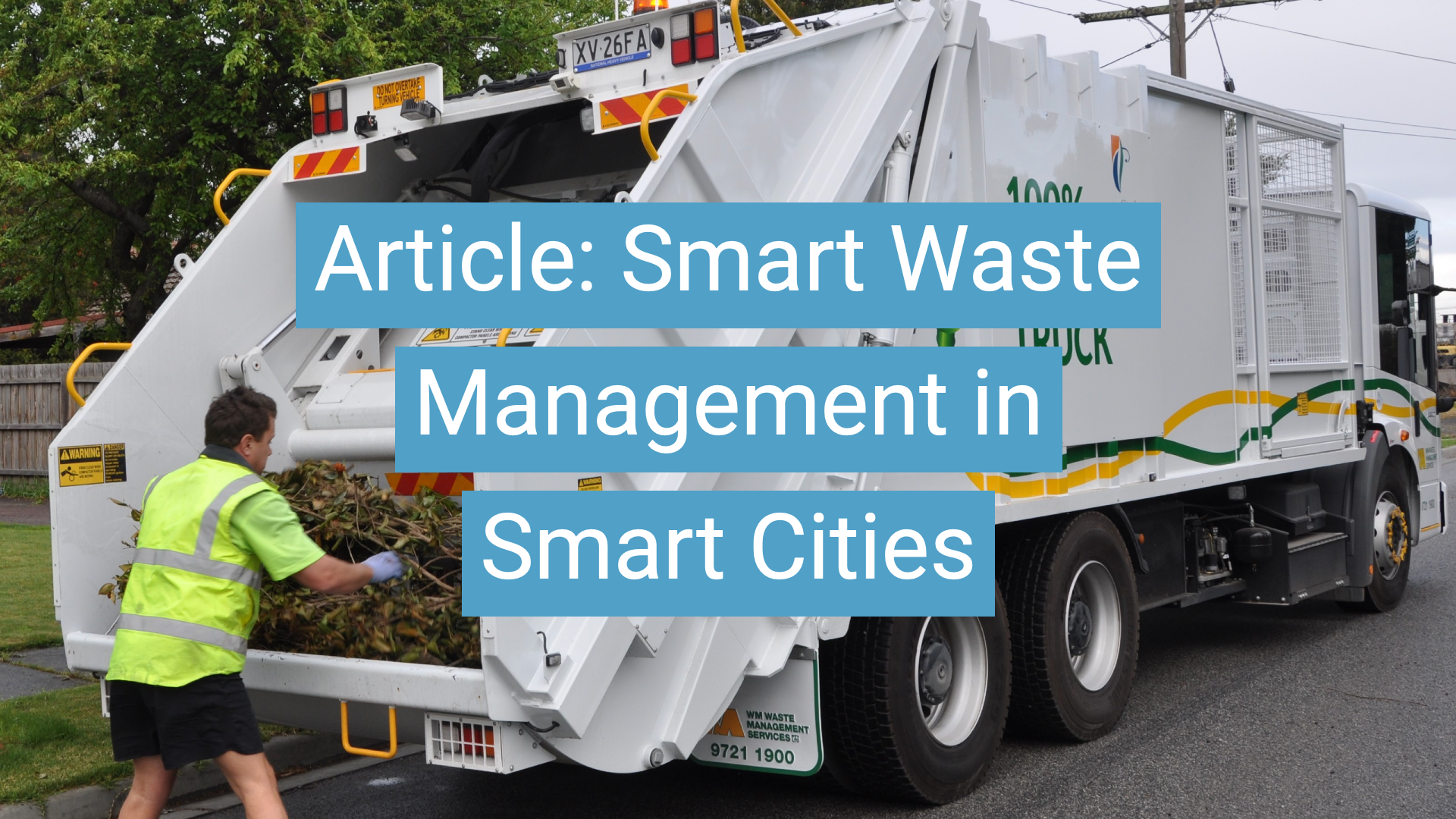In this Article
Smart Waste Management for Smart Cities
A smart city is the one which uses data and technology for obtaining efficient results, fostering a wide-ranging economic development, improvement of sustainability in all sectors, and enhancement of living conditions. The use of technology for achieving these objectives covers a wide range of sectors which range from the education sector to the health sector. This even includes the smart waste management sector.
Waste management for smart cities has become more complex than ever before. More waste is produced by people around the world, and this can lead to some major challenges. One of these challenges is to dispose of waste without exposing individuals to various health issues. A component of waste management is a waste collection which is essential for any smart cities. IoT and other smart technologies can be used for increasing efficiency and improving the performance of waste collection processes.
Efficient collection and management of waste containers not only improves waste collection costs it helps contribute to the circular economy and zero waste initiatives.
Some major ways for achieving these objectives are,
- Automated Waste Collection
Automated sensors are being introduced, which function to issue automatic alerts each time a container is filled up and requires servicing. In this way, IoT can make a great impact on various workflows of waste management. Some other smart tools such as optical sorters and advanced disk screens have been introduced for making the sorting process faster and easier.
The vehicles used for waste collection now run on renewable energy which is more cost-effective and quieter. Also, mobile apps, in-vehicle monitors, and logistics software are being developed for making the waste management process easier and simpler. It also helps in making sure that the driver and waste collection staff is safe.
- Route Optimization
Route optimization is important for reducing hazardous emissions and protecting the environment. Many companies are investing in advanced software and systems which are dedicated to optimization. Many waste collection companies are now using automated trucks which are installed with robotic arms which serve to save time and effort along normal routes. It has made the waste collection an eco-friendly process. This technology is also financially viable and helps in saving energy and improving efficiency.
- Faster Turnaround Periods
Waste management companies are now investing in technology which provides a better experience to their customers. They are working on the development of mobile apps which are user-friendly, promote faster delivery of services, and even instant bill payments by push notifications.
- Improved Rates of Recycling
Waste management and recycling companies are working on improving their tools and techniques. There is a recent development in single-stream recycling that allows people to dump all of their garbage in one bin. This has reduced the burden of people by helping with sorting and has also affected the recycling rate. Additionally, it has contributed to the reduction of the emissions as well as the truck count.
- Modernization of Landfill
By harnessing the power of technology, the waste management industry has successfully modernized garbage dumps. Landfills are being systematically injured, which appropriately comply with relevant regulations. These landfills ensure complete preservation of the environment and protection of health. Solar panel systems are being used by integrating them together with geomembranes. They provide important support for producing sustainable energy and preventing carbon from being emitted into the environment.
Related Blog Posts
How Smart Cities Connect: Getting Started with Edge AI and IoT Technology
How to Get Started with Edge AI and IoT Technologies in Smart Cities: Overcoming Integration Challenges In recent years, the concept of smart cities has evolved from a futuristic Read More
5 Step Strategy: Ensuring Security and Privacy in 15-Minute Smart Cities
Introduction Ensuring security and privacy in 15-minute smart cities is a critical challenge as urban areas become increasingly connected through IoT and edge AI technologies. These cities aim to Read More
What is a smart city and the challenge of legacy systems
How to Get Started with Integrating Legacy Systems in Smart Cities Smart cities are transforming urban landscapes by leveraging technology to improve the quality of life for residents. However, Read More




